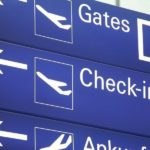Delta has released a short primer that provides travelers with more information about its biometric screening program. The airline is hoping that the primer will make passengers feel more comfortable with facial recognition, which will in turn encourage more people to embrace contactless screening technologies.

In that regard, the primer reflects the growing interest in touchless security solutions. Contactless readers are more hygienic than physical documents, which are usually handled by several people over the course of a typical passenger journey. Airlines and airports are hoping that contactless technology will slow the spread of COVID-19 and help restore the public’s trust in the travel industry.
On that front, Delta noted that its biometric boarding system is entirely optional, so passengers will still be able to submit their passport and boarding pass for a more traditional inspection. However, those who opt into the system should not expect to have their privacy compromised as a result. Delta does not store the biometric information of any of its customers, and stressed that the images that are captured during the process are de-identified before being sent to U.S. Customs and Border Protection. The images of U.S. citizens are deleted after 12 hours, while those of international travelers are stored with the Department of Homeland Security.
According to Delta, facial recognition is used only to match an individual to the image in their passport, thereby automating a check that is legally required for air travel (airlines must make sure that everyone boarding the plane is actually listed on the manifest). The system is not designed for large-scale mass surveillance, and the algorithms backing it are accurate 99 percent of the time.
Biometric boarding is currently available to international Delta travelers departing from airports in Atlanta, Minneapolis, Salt Lake City, New York, Detroit, Los Angeles, Portland, and Boston.
–
July 17, 2020 – by Eric Weiss





Follow Us